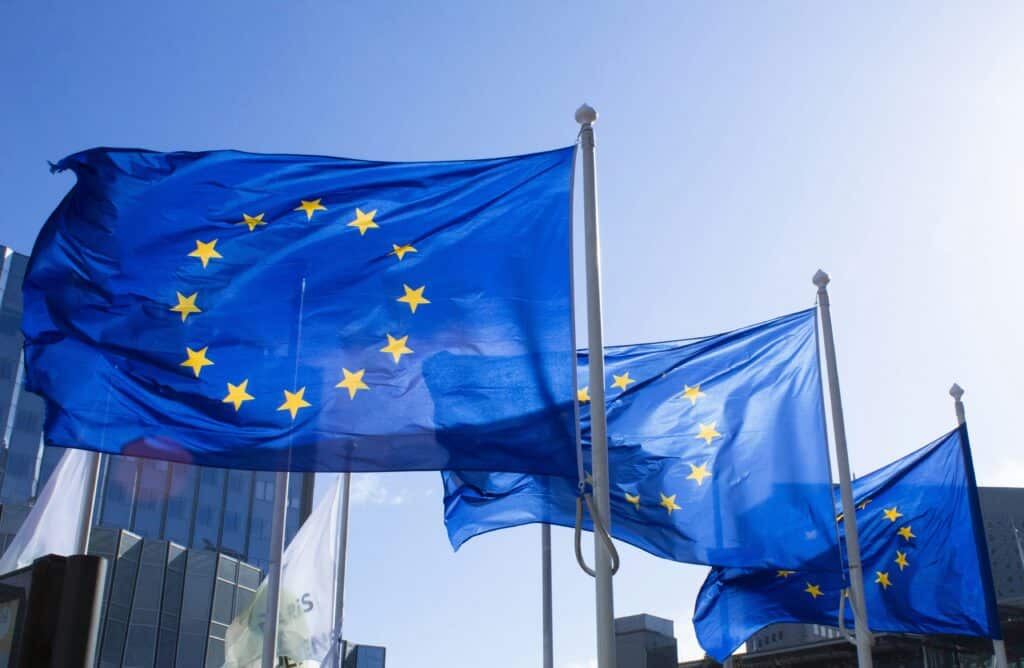Moving from smart (meters, charging, buildings) to interoperable: Tales of a distant land
Highlights from the online event: Interoperability related to smart metering, electromobility and buildings under the Green Deal
In this episode of the #FSRinsights series, Doris Österreicher (University of Natural Resources and Life Sciences, Vienna), Mart van der Kam (Université de Genève), and Antonello Monti (RWTH Aachen University) joined the FSR team to discuss recent research on interoperability in the electricity, electromobility and buildings sectors.
Takeaways from the event
The discussion was organised around two aspects of interoperability related to smart metering, electromobility, and buildings, with a view to initiatives planned under the EU Green Deal:
- Sector-specific interoperability issues and solutions
- The need for a cross-sectoral governance framework to find common solutions to common issues
A few takeaways from the debate are summarised below.
Smart meters are the gateway to the customers, but what are smart meters?
Smart meters are becoming the gateway to the customers who live in buildings and own electric vehicles. Therefore, interoperability challenges related to smart meters can be viewed as the sum of the challenges that the electricity, electromobility and buildings sectors face. But before opening the interoperability debate, we need to close the discussion of what a smart meter is.
The first generation of smart meters aimed at transforming an analogue process into a digital one through the implementation of an electronic meter. A few forerunner countries like Italy are already rolling out the second generation of smart meters with more functionalities. However, in many other countries, utilities did not see much value in business cases related to electronic or smart meters.
The fact that many consumers all over Europe still have Ferraris meters installed means that an enormous gap exists between the current discussion on providing sophisticated services using smart meters and the everyday reality of metering.
There may be a need for a third generation of smart meters that can function as sophisticated data gateways and allow for the implementation of various services.
From smart charging and smart readiness to smart energy systems
The biggest interoperability challenges are located at the interface of the three sectors, despite the many challenges each sector faces individually. Time is of the essence to find forward-looking solutions.
In electromobility, some challenges exist on the more technical level; others are related to business models. At the centre of the current debate are communication protocols, especially for EV roaming, and the question of the extent to which the existing protocols foster a level-playing field by enabling different business models. However, the biggest challenge and still an open question is how electric vehicles can be integrated into the wider energy system via smart charging.
In buildings, some interoperability challenges exist during the planning phase (e.g. related to Building Information Models), but these are largely under control. The current focus of the debate is on the operational phase, namely the connection of buildings to both electricity and thermal networks and their active participation in the energy system. The introduction of tools like the Smart Readiness Indicator (that defines how (much) a building can interact with the grid) moves this debate forward, despite open questions that remain on the scope and the final aim of the indicator.
Time is a critical factor, especially when it comes to buildings, as they have life cycles of up to 100 years. Opportunities we take – and mistakes we make – today will affect the ability of buildings to be active participants in the energy system for a long time. Forward-looking planning processes need to be implemented to ensure that, once the interoperability issues are solved and the building (data) can be easily accessed, the right design and architecture is already in place to support new business models.
Openness is a prerequisite for interoperability
Especially in the electricity sector, we are moving from an ecosystem that was mostly hardware-defined to one that is mostly software-defined.
Openness is a crucial prerequisite to deal with the significant scaling of the interoperability complexity that this change is bringing. Openness requires critical cultural changes, namely a revolution of the concept of software development and increased use of open source solutions.
To clear up a common confusion – open source does not mean removing intellectual property rights but implementing pre-competitive layers that enable interoperability but do not impede product differentiation.
Taking an example from EV roaming, a protocol designer may choose to build a protocol in a way that makes it easier to adapt to different kinds of future solutions, although she does not yet know what the solutions of the future will be. In this way, openness can support interoperability.
Some form of cross-sectoral governance may be needed
The transition to an interoperable energy system that integrates smart meters, smart charging, and active buildings will likely require some forms of cross-sectoral governance. Elements that could be included in a cross-sectoral governance scheme are
- Engagement activities: These need to target experts and the relevant stakeholders but should also make sure the consumers and citizens are on board and do not feel left behind in this new data-driven economy.
- Monitoring and reporting schemes: These are important for well-functioning policy loops since they allow decision-makers to change policies based on facts.
- Tools and knowledge sharing: This can happen on a more technical level via repositories and large-scale research projects but may also be helpful on higher levels, for example regarding business models.
- Standardisation initiatives: Focusing on standards that are interoperable by design may be more future-proof than adding new layers of cross-sectoral standardisation activities to the already complex standardisation landscape.
- Interoperability testing: New mechanisms for testing and verification will need to be developed to support the industry in the aforementioned process from a hardware-defined to a software-defined interoperable ecosystem.
Relevant links
Getting our act together on the EU interoperability acts, FSR Policy Brief by Valerie Reif and Leonardo Meeus (July 2020).
Facilitating interoperability of energy services in Europe, FSR online event with recording and event highlights available (July 2020).
Digitalisation of energy infrastructure and data interoperability: what can we learn from other sectors? FSR online event with recording and event highlights available (January 2021).






